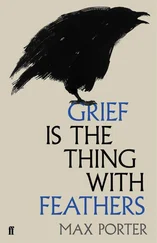“You cannot see the vital principle that animates it,” Gob said, staring at a stock ticker that had been set in his machine before they’d remade it. He’d taken the ticker all apart and half-reassembled it. He was in a mood, mourning the fact that he could not see spirits in general and his brother in particular, when he devoted his life to them, and when a person like his mother could see them, and hear them, even, it seemed, have tea with them. Will thought of his own mother’s lamenting.
“It won’t bring them back,” Will said, “to merely complain.”
“But it will,” Gob said. “Don’t you understand? What’s grief if not a profound complaint? It’s what the engine will do; it will complain. It will grieve with mechanical efficiency and mechanical strength. It will grieve for my brother and for your brother and for the six hundred thousand dead of the war. It will grieve for all the dead of history, and all the dead of the future. Man’s grief does nothing to bring them back, but just as man’s hands cannot move mountains, but man’s machines can, our machine will grieve away the boundaries between this world and the next. And then, sure as the rails run to California, the way will be open.”
Will kept working, kept his eyes on the battery and his attention on the task of filling the little porous cup with acid. But though he didn’t look at Gob, he knew how his face must be animated with pride and anger and sadness — it was the look he got when he made grand statements about their work. It was a difference between them, that Gob liked to talk so much where Will preferred simply to work. And that talkiness was part of the reason, Will figured, for Gob’s cleaving to Mr. Whitman.
Later, Gob put the ticker back together completely and then worked it again into the machine — it sat in the place where a navel would on a person. Then he went downstairs to read. Will was still patiently assembling batteries fifteen hours after he began. It was then the angel paid him another visit. She stayed awhile this time, a full five minutes. Will ignored her, as had become his custom. But before she left, Will had looked up to see her pointing with fingers and wings at the engine. “God hath not wrought this,” she said.
Will considered a fresco on Mrs. Woodhull’s parlor ceiling: it depicted Aphrodite surrounded by her mortal and immortal loves. They were clothed, but the goddess had exposed herself fully, and any guest who cared to stretch back his neck could gaze on her nakedness. Tennie was going on about Mr. Whitman. She got overexcited on his behalf whenever he was nearby. Gob had brought him to a party given in September of 1870 by Mrs. Woodhull in honor of Steven Pearl Andrews and his massive brain. Mr. Whitman was walking around the room with his hostess, having just left, thank goodness, Will’s company and Tennie’s, and still she went on about him.
“I had a vision,” she said, “in which he grew out of the ground like some wholesome weed. He was a green man, with daisies and bluebirds in his hair. Little animals came out of the forest to play about his feet.”
Will rubbed his chest where Tennie had given him a little shock. It hadn’t hurt, but it was always a surprise, when she did it. He wanted her to do it again.
“Let’s go upstairs,” he said. “I’m tired of this party.”
“Already? Mr. Andrews hasn’t even arrived.”
“Let’s go away,” he said. “Let’s go away tonight on a journey. Have you been to Canada? It’s a foreign country, you know.”
“I’d heard,” she said, and gave him a look that he knew too well. It said, I’m bored with you.
“Do you see how he walks?” she asked, staring after Whitman. “Like a bear, heavy and shambling and careless.”
“He is a magnificent creature,” Will said hollowly. “He is a kosmos.” He thought of Gob. They’d argued, earlier, because Will had made disparaging remarks about Whitman. Will had said this whole kosmos business seemed to him a senseless honor and an unearned distinction. “Who named him Kosmos, anyhow?” Will had asked. “Was it his cat? Is he also the Marquis of Carrabas?” Now, Gob was nowhere to be seen.
“I know you hate Mr. Whitman,” Tennie said, and went away in search of punch. He watched her go, leaning to speak a word or two into the ears of various men as she passed them. Mr. Challis, the licentious broker, was not at that party, yet Will found his thoughts drawn towards the man and colored with jealousy. When he was with her, when he came half awake in the night and she was wrapped all around him, when her hair lay heavy on his face and the very air he breathed was flavored by her, then he got a feeling that she surrounded him utterly, and this was a notion that comforted him and agitated him. He would think of her as a beautiful house, one entirely unlike Gob’s house, a place without secret basements where bones hung in chains from the ceiling and swayed and clanked in sourceless breezes. In his mind, he would go from room to room, each one stuffed with bright trinkets, and find way up top a machine whose purpose was the manufacture of delight. It was good to wander there, to look at her machine and listen to its noise, which was the noise of her snoring, chortling breath. Yet inevitably he encountered other men as he wandered in the rooms, always there were others who tended her machine, men who were strangers to him, who, when he opened a door and surprised them where they lounged in the supremely comfortable furniture, peered at him and asked, “Who are you?”
“Are you sleeping, Dr. Fie?” asked a lady who had come up and stood silently next to him. Will thought it was Mrs. Woodhull, but when he opened his eyes he saw that it was Miss Trufant, a girl who was her secretary and aide-de-camp in her war of reform. She was dressed up like her mistress in a skirt and a masculine coat.
“No, I’m quite awake,” he said.
“Mr. Andrews will stimulate you, if you are sleepy. I think he must be the most intelligent man in the world.”
“I think that person is Dr. Woodhull,” said Will, because he’d promised Gob he’d say flattering things about him in her presence. Gob had a giggly, schoolgirlish affection for this small, dark person. “What do you think of her?” Gob would ask over and over. “Do you think she is pretty?”
“I think you are besotted with that fellow,” she said. “Tell me, Dr. Fie, does Dr. Woodhull keep the stars in his pocket? Can he bring down the moon to give you as a good-evening present?” She smiled.
“Don’t you admire him, too?”
“Oh, I am indifferent to him. But I think two persons as devoted as you two should marry at the earliest convenience.” She folded her hands in front of her. Will looked down at them, noticing how they had a particular quality of loveliness — he thought how it must be difficult to make two things so perfect and small. She put them behind her back. “I said that in jest, Dr. Fie. But now I think I have offended you.”
“Not at all,” he said, but she was blushing, and she turned the conversation to the subject of the Fourteenth Amendment and its bearing on woman suffrage, something about which Will knew nothing at all. Very soon, she excused herself, saying she had to seek out Mr. Butler. “Yes,” he’d tell Gob later, as he always did, “she’s very pretty.”
Mr. Whitman got ill standing in the rain watching the funeral procession of Admiral Farragut. Will, when Gob brought him in to consult, diagnosed pneumonia, because Whitman’s lungs were wet as sponges. The patient insisted it was an old sickness contracted during his time in the Washington hospitals, and that the rain had weakened him and made him susceptible. He asked to be bled, because that always improved him when this illness was on him. Gob gave him an elixir and put him in one of the huge beds at Number 1 East Fifty-third Street, in a room that hadn’t been opened in years. Whitman got sicker under their care, feverish and delirious, calling out in lament for David Farragut, and then for a variety of persons. He mumbled names: John, Stephen, Elijah, Hank, Hank, Hank. “Dr. Woodhull,” he moaned. “How is my fever-boy?” Even Will tried to comfort him, putting his big hand on Whitman’s hot sweating head and saying, “Hush, sir.”
Читать дальше












